Fall is often overlooked as a planting season, but when it comes to fruit trees, it can actually be one of the best times to get started. Cooler temperatures, increased rainfall, and a natural slowing of plant growth all work in your favor. By planting in autumn, fruit trees can establish strong root systems over winter and burst into action once spring arrives. If you’re dreaming of a future filled with homegrown fruit, these five trees are ideal candidates for fall planting.
Apple Trees
Apple trees are a classic choice for backyard orchards, and fall is a prime time to get them in the ground. By planting in autumn, the roots have time to settle into the soil and strengthen before the growing season kicks off in spring. This early start often translates to faster growth and earlier fruit production.
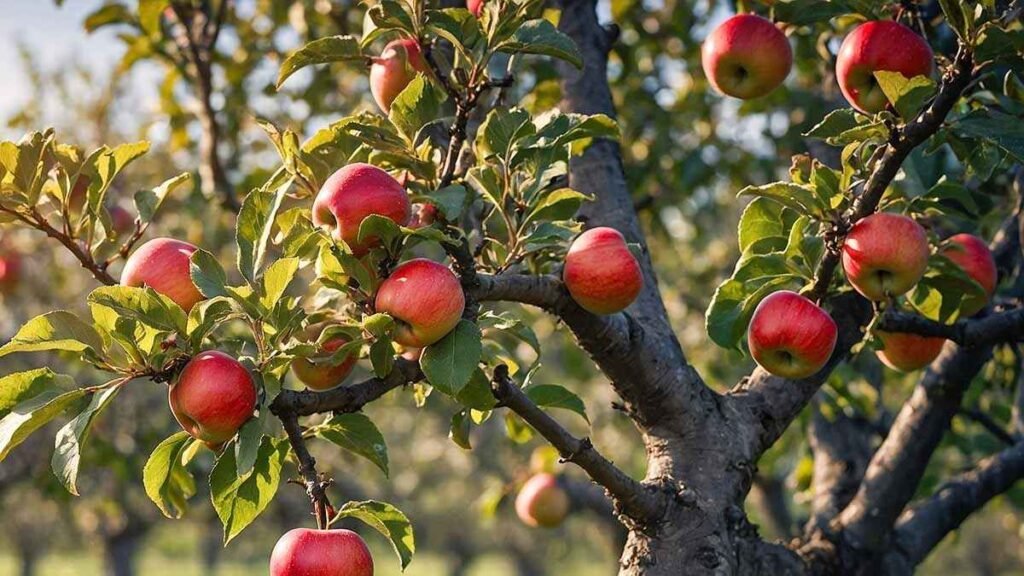
There are countless apple varieties to choose from, depending on your climate and taste preferences. Hardy types like ‘Honeycrisp’, ‘Fuji’, and ‘Gala’ are great options for colder regions, while warmer zones might favor ‘Anna’ or ‘Dorsett Golden’. Make sure to plant at least two different varieties that bloom at the same time for cross-pollination unless you choose a self-pollinating cultivar.
When planting, choose a spot with full sun and well-draining soil. Avoid low-lying areas where cold air or water may collect. Proper spacing is essential to ensure good air circulation, which helps prevent diseases like apple scab or powdery mildew.
Pear Trees
Pear trees thrive with a fall planting schedule, especially in areas with mild winters. Like apples, pears benefit from the cool, moist conditions that allow roots to develop steadily through the dormant season. By spring, a fall-planted pear tree will be ready to leaf out and start growing vigorously.
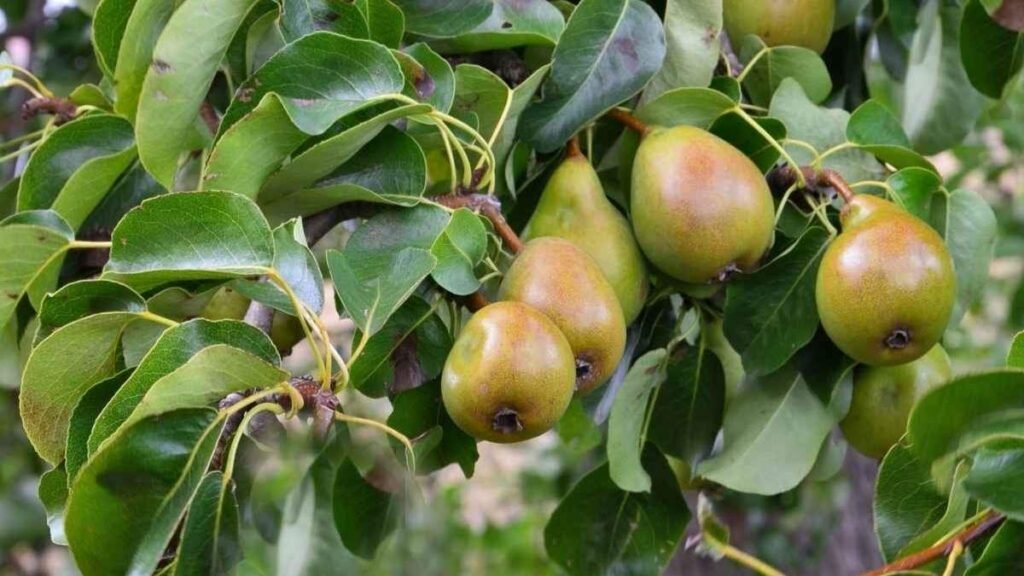
There are two main types of pears: European and Asian. European varieties like ‘Bartlett’, ‘Bosc’, and ‘Anjou’ are traditional favorites, offering a soft, juicy texture. Asian pears, such as ‘Shinseiki’ or ‘Hosui’, are crisp and sweet, often described as a cross between an apple and a pear.
Most pear trees require a compatible pollinator, so plan to plant at least two different varieties. Even self-pollinating types will typically produce more fruit with a partner nearby. Pears prefer full sun and slightly acidic, loamy soil. Avoid overwatering, especially during winter, and mulch well to insulate roots.
Plum Trees
Plum trees are another excellent fruit tree to plant in the fall. Whether you love the sweet flesh of Japanese plums or the tart complexity of European varieties, plums establish well in the cooler months and reward patient gardeners with abundant harvests in just a few short years.
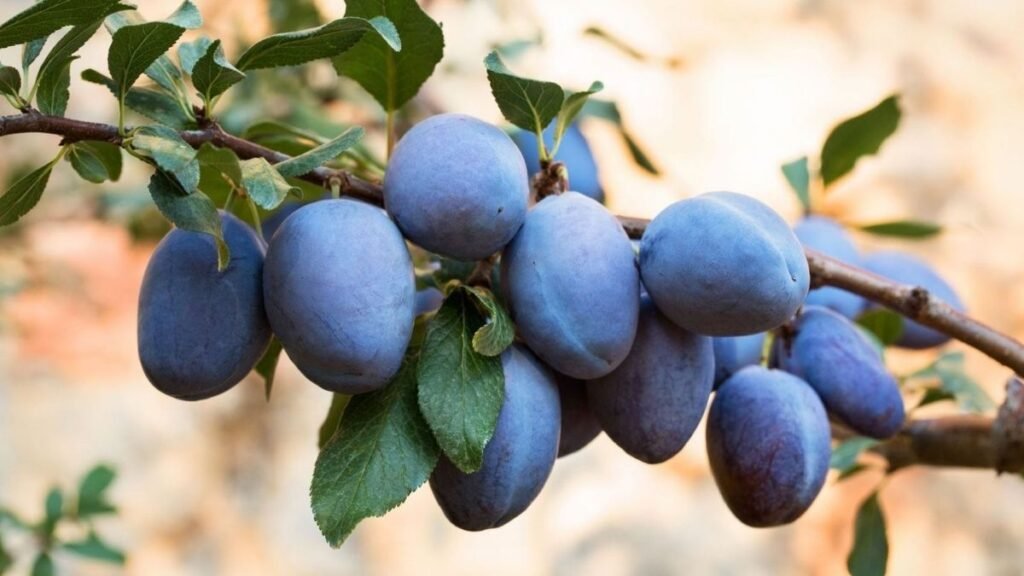
Japanese plums like ‘Santa Rosa’ tend to ripen earlier and have a juicier, more tropical flavor, while European plums such as ‘Stanley’ or ‘Green Gage’ are perfect for eating fresh or preserving. Most plum trees require cross-pollination, though a few varieties are self-fertile.
Plum trees prefer full sun and well-drained soil with moderate fertility. Avoid overly rich soils, which can lead to excessive leafy growth at the expense of fruit. Keep in mind that plum trees benefit from careful pruning to maintain structure and improve air flow. Planting in fall gives you a head start on establishing that framework.
Cherry Trees
If you have room in your garden and enjoy a little sweetness or tartness in the spring and early summer, cherry trees are well worth considering. Whether you opt for sweet cherries like ‘Bing’ or tart types like ‘Montmorency’, planting in the fall gives them time to develop roots and prepare for spring growth.
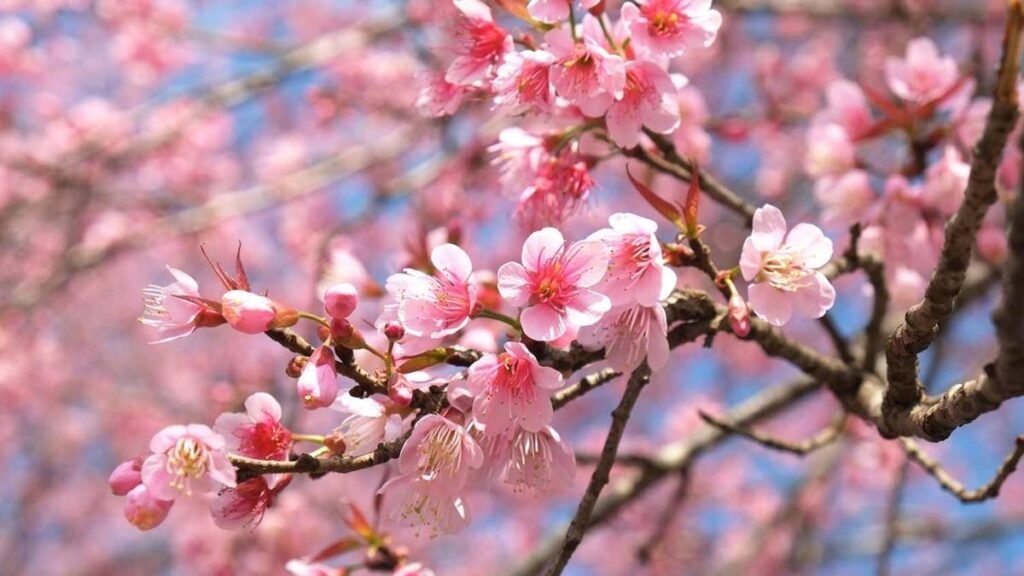
Cherry trees are a bit more sensitive than other fruit trees, particularly when it comes to drainage and climate. They dislike wet feet, so well-drained soil is essential. Raised beds or mounded rows can help improve conditions in soggier yards.
Most sweet cherry varieties require cross-pollination, while many sour types are self-pollinating. Make sure to research the specific needs of the variety you choose. Give your cherry trees full sun and ample space cherry trees can grow fairly large unless you’re working with dwarf or semi-dwarf rootstocks.
By planting in fall, you give your cherry trees a better chance to establish before the challenges of spring pests and summer drought set in. You may not see fruit the first year, but you’ll be ahead of the game for seasons to come.
Peach Trees
Peach trees are fast growers, and when planted in the fall, they often reward gardeners with rapid growth and earlier fruiting than those planted in spring. While a bit more sensitive to cold, peach trees can thrive when planted at the right time and protected from harsh winter conditions.
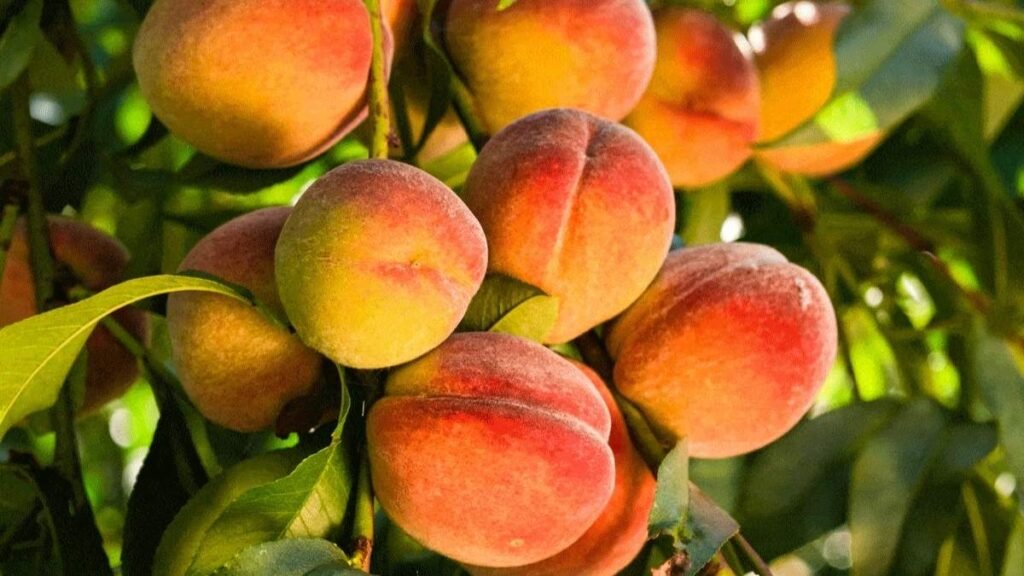
Look for varieties suited to your growing zone ‘Redhaven’, ‘Elberta’, and ‘Reliance’ are popular choices with proven hardiness and flavor. Peach trees are typically self-pollinating, which means you only need one to get fruit, although more trees can lead to larger harvests.
Plant peach trees in a location with full sun, good air circulation, and well-drained, sandy or loamy soil. Avoid low spots where frost may settle, and mulch well around the base to protect roots and conserve moisture. Fall planting allows the tree to put energy into root development, giving it a strong start when the warm weather returns.
Peach trees also require regular pruning to maintain their shape and encourage fruiting. Starting early helps you train the tree from the beginning, rather than correcting problems down the road.
Final Thoughts
Planting fruit trees in the fall is a smart strategy for gardeners who want a jump-start on the growing season. With less transplant shock, more consistent soil moisture, and time for root establishment, fall-planted trees are often healthier and more productive in the long run.
Each of the trees listed apple, pear, plum, cherry, and peach brings its own unique flavor and beauty to your yard. Choose varieties that suit your climate and taste preferences, and take the time to prepare your planting site properly. With just a little effort now, you’ll be well on your way to enjoying homegrown fruit for years to come.

